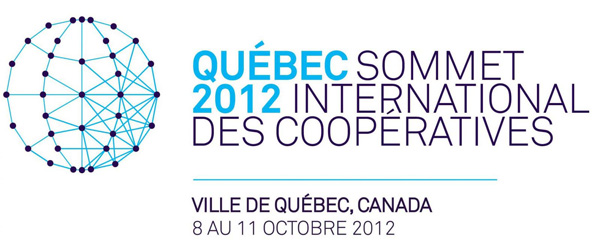I participated from October 8th to 11th, 2012 to the first International co-operatives’ summit in Quebec City. Bringing together 2800 participants from 91 countries on the theme “The Amazing power of cooperatives”, it has been the occasion for conferences, forums and roundtables on the economic stakes of cooperatives.
In this fourth article, I wonder about the future of a cooperative: how should it consider its expansion? Do we have to grow, have more members, more market share? On the contrary, should we multiply and create other co-ops? Similarly, this question arises in the operational excellence projects. How to take advantage of the successful project? Is it necessary to broaden its scope of action? On the other hand, should new “small” projects be started for each sector/product?
Financial growth: Royal Track or only known route?

The co-president of the International Cooperative Alliance, Felice Scalvini, proposes an interesting answer. Beyond the growth of a cooperative, the importance is the growth of the co-operative phenomenon.
In fact, the growth of co-ops is more often linked to the will of the management than that of the members. First of all, most of the major schools that train managers teach one goal: to grow as much as possible. Then there are few trainings in cooperative management.
In a world where massive consumption is being put forward, any company that wants to succeed must deliver as many products as possible to the largest market share. However this approach does not always respect individuals: the need of customers is often ignored.
In the lean approach, we find the same problem. When a sector makes improvements, does it have to support improvements in other areas and grow the team? Or should it share its experience with representatives of other sectors. In that case, the first department will let them apply what they need.
Obviously both methods have their pros and cons. The growth of the operational Excellence team is a good thing. As this growth increases skills in the same place, individuals grow.
However, the multiplication of teams and specialists is also a relevant route. “Decentralization” brings a different perspective on methods and tools. Decentralized teams have the advantage of being closer to their customers. They know more about their products and processes, which is the basis of operational excellence.

The growth of knowledge and culture, the decentralized alternative
To take up the idea of Felice Scalvini, I could say: Beyond the growth of the operational Excellence team, the importance is the growth of the culture of Operational Excellence. A successful company has been able to disseminate operational excellence within its entire organization. The head of the Lean program in a hospital told me about “contamination“. This medical image is very strong. All in all, in the way of a virus, continuous improvement and operational excellence must be integrated by some. It is then shared with colleagues, until they too are infected with the virus.
These ideas seem simple and yet their application is not easy. According to Michael L. Cook, a professor of co-operative leadership at the University of Missouri-Columbia, the difficulties faced by cooperatives are the multiplicity of performance indicators.
Companies with capital action measure the profitability of their investments (ROI). They make their choices in the light of this single indicator.
In cooperatives, as in lean companies, other indicators are used to determine the relevance of a project: customer satisfaction, impact on employees,… That’s why the choices are much more difficult. A project may not be profitable but bring a lot to the customers and/or employees.
The other difficulty lies in listening to clients and members. Indeed, they do not all have the same needs or the same objectives. In the strategic orientations, we must reconcile, the expectations of each one, the profitability, which is a condition of survival, and the capabilities of the organization.

Think decentralization: Operational excellence empowers teams and trains specialists to disseminate the culture of operational excellence.

